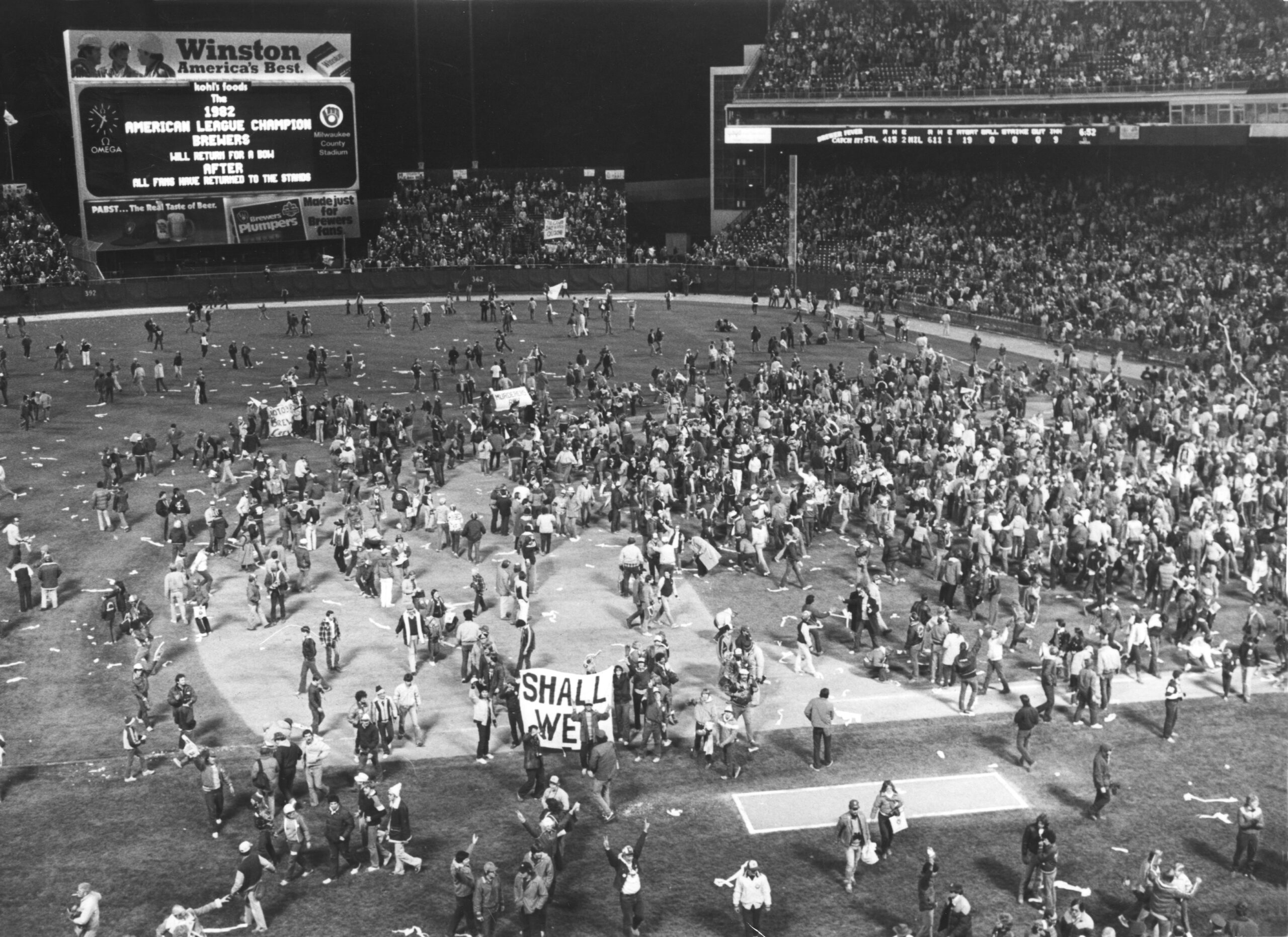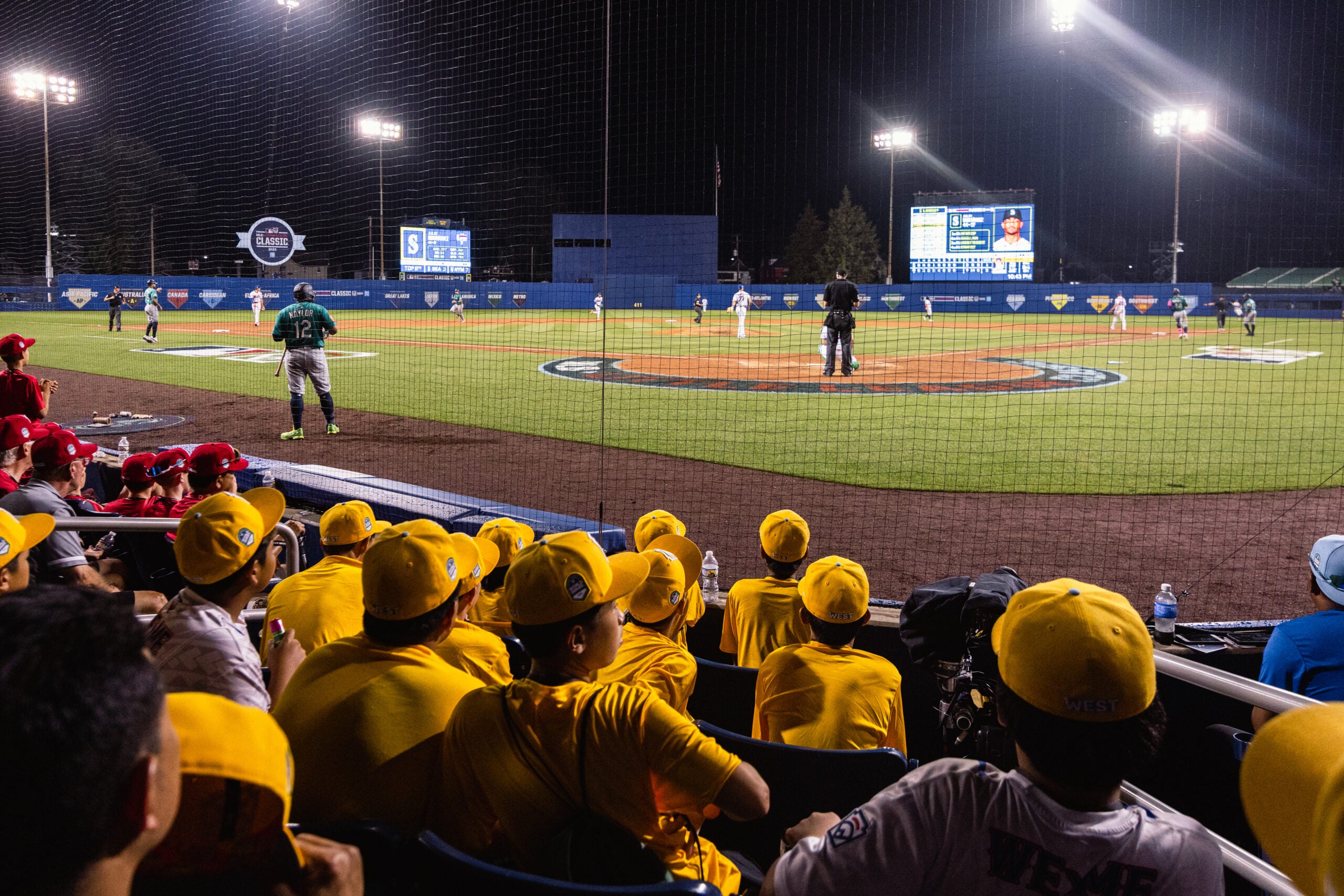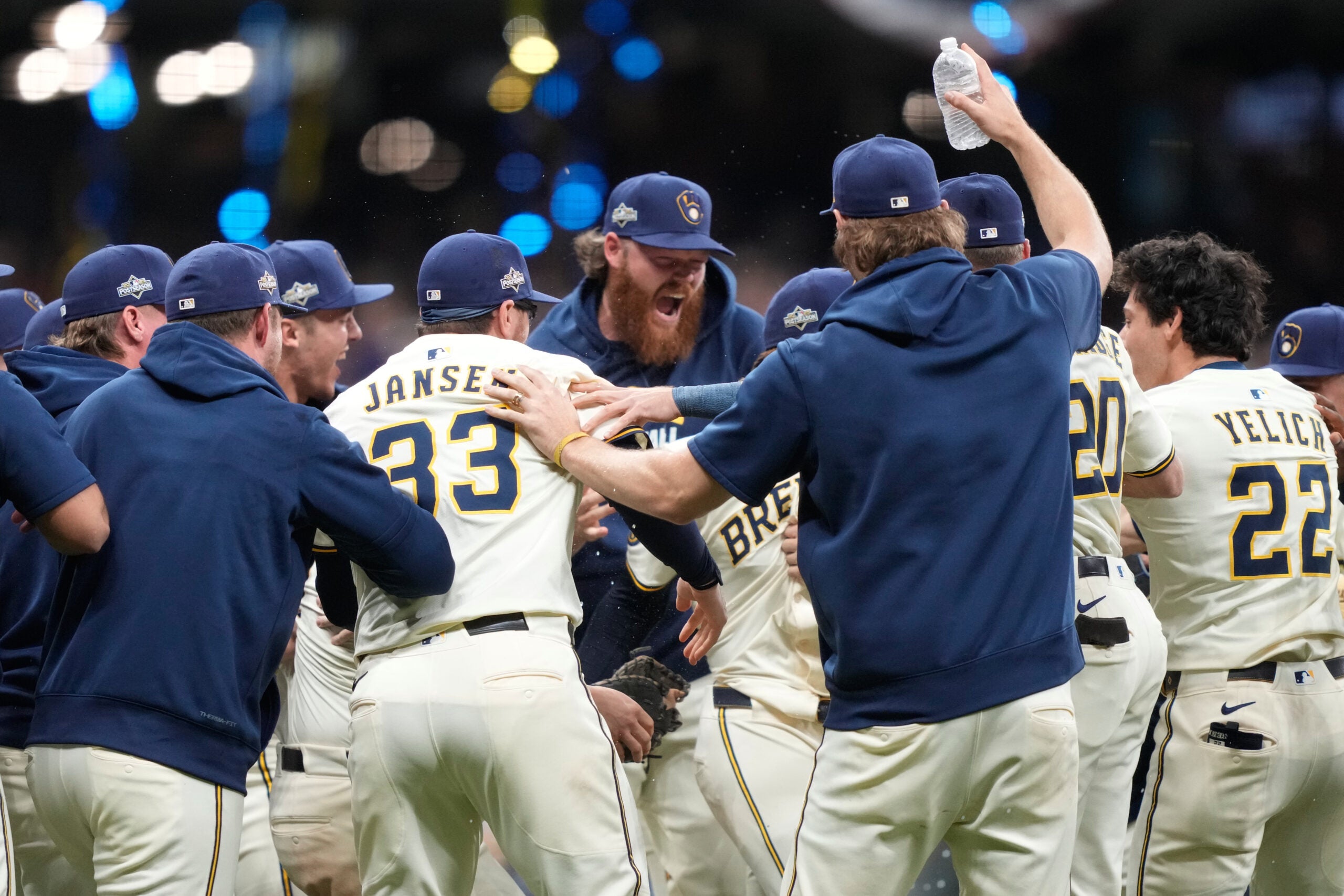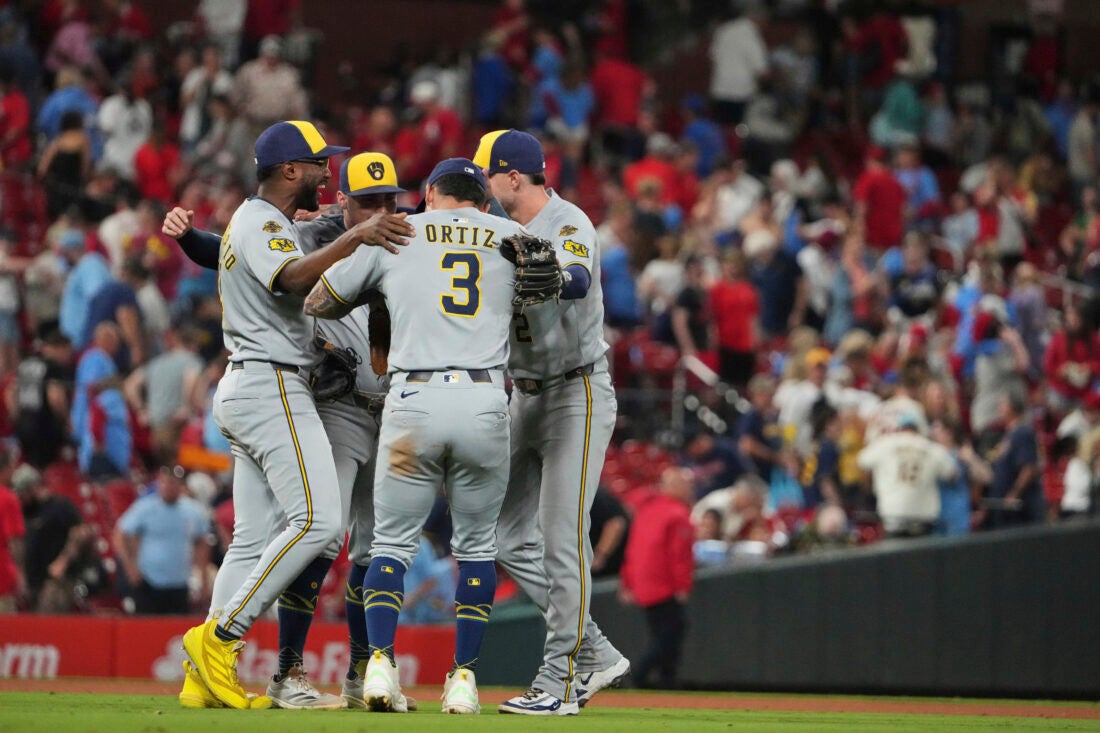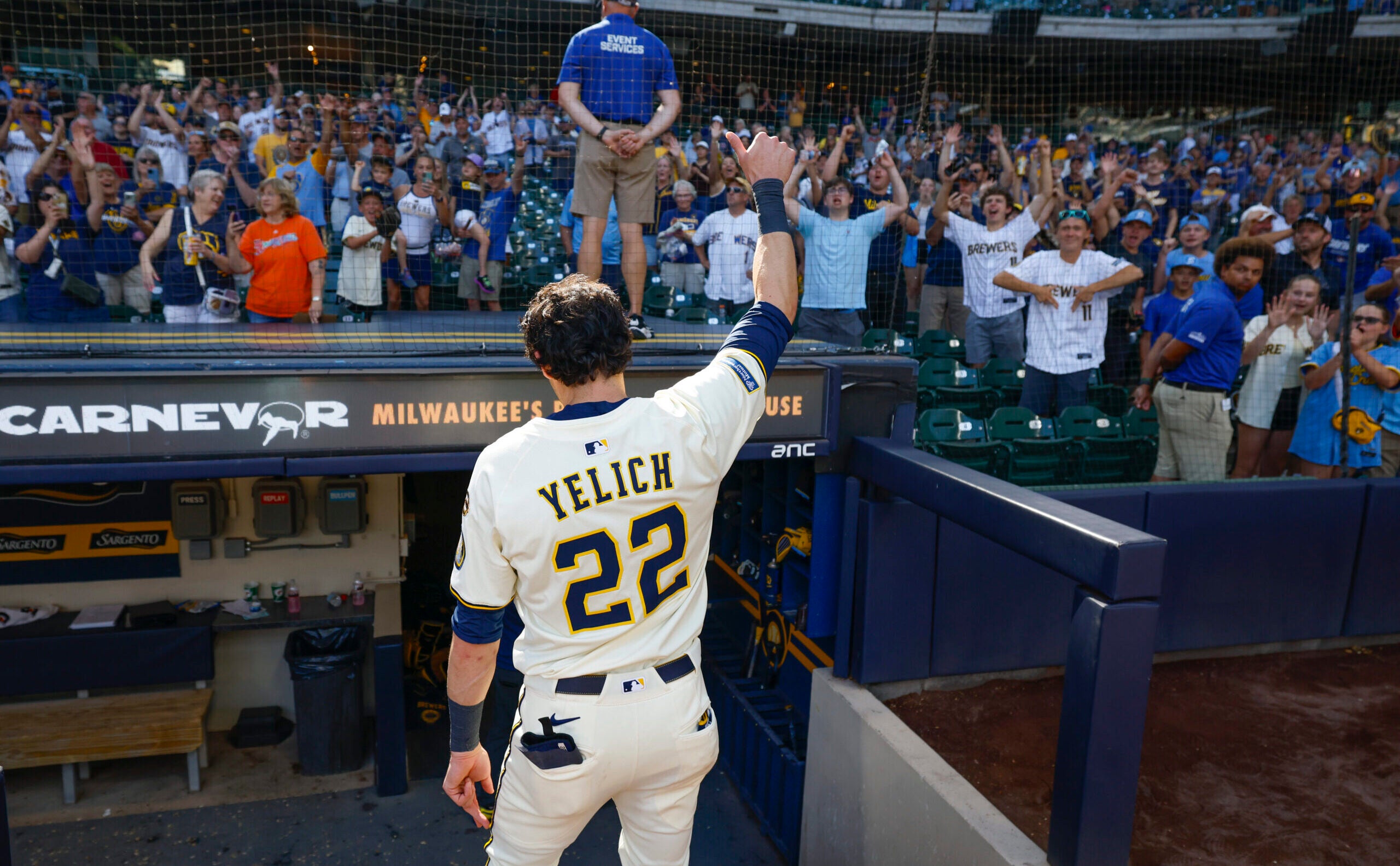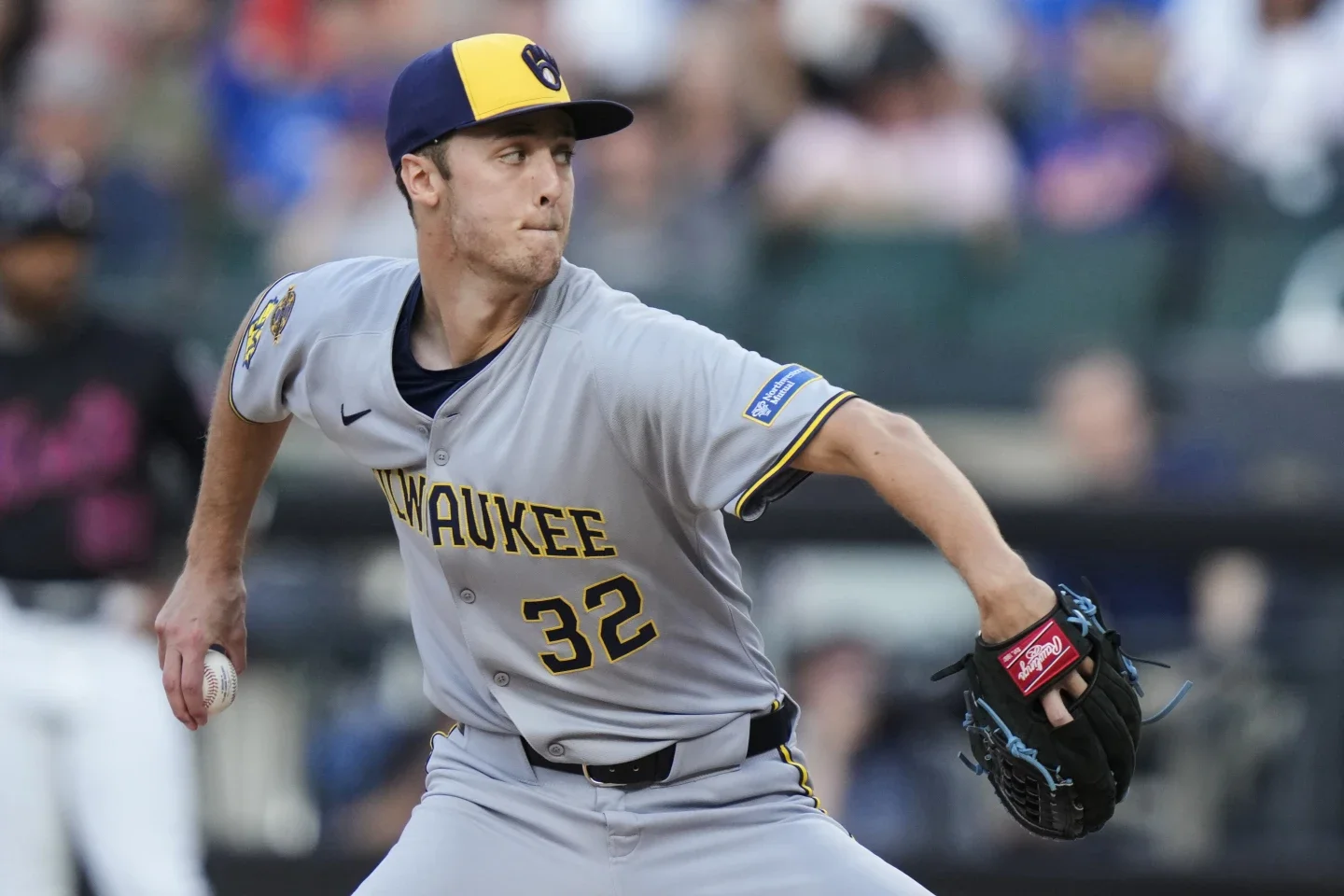More than four decades after the 1982 Milwaukee Brewers fell in the World Series in a Game 7 loss to the St. Louis Cardinals, a new film is taking a deep dive into one of the most memorable Brewers rosters in the team’s history.
The 1982 Brewers team featured several future Hall of Fame players on one roster, including shortstop Robin Yount, catcher and first baseman Ted Simmons, and pitcher Rollie Fingers. But despite high expectations, the team underperformed to start the season. The team fired manager Buck Rodgers and replaced him with hitting coach Harvey Kuenn.
This change in management was just what the team needed, said Sean Hanish, director of the new film, “Just a Bit Outside.” The film premieres Wednesday at Marcus Majestic Cinema in Waukesha.
News with a little more humanity
WPR’s “Wisconsin Today” newsletter keeps you connected to the state you love without feeling overwhelmed. No paywall. No agenda. No corporate filter.
The premiere is set to feature appearances from Major League Baseball commissioner-emeritus Bud Selig and several members of the 1982 Milwaukee Brewers. The film will be in Marcus theaters statewide Friday.
“He (Kuenn) provided consistency. He wrote down the same lineup almost every day,” Hanish told WPR’s “Wisconsin Today.” “He was just a steady hand and a good man.”
The lineup, dubbed “Harvey’s Wallbangers,” turned the season around. The team won 20 of its next 28 games and was tied for first place with the Boston Red Sox by the All-Star break, according to Just Baseball.
The Brewers made it to the World Series, where the Cardinals mounted a Game 7 comeback in the bottom of the sixth inning. The Cardinals then held “Harvey’s Wallbangers” scoreless for the last three innings of the game.
Nonetheless, Hanish told “Wisconsin Today” about what made this Brewers team so special.
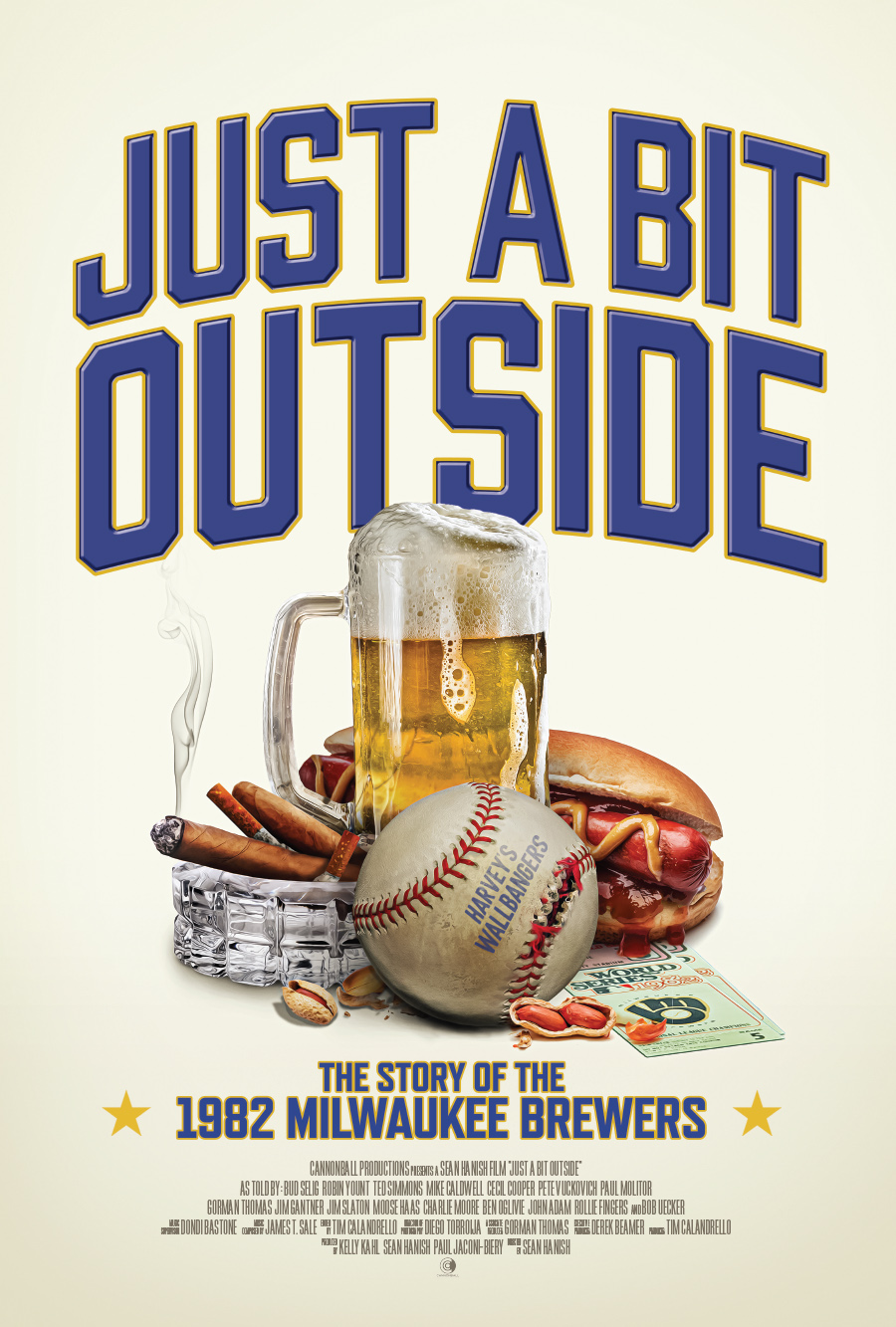
The following was edited for clarity and brevity.
Kate Archer Kent: Why tell the story of this Brewers team in this particular year?
Sean Hanish: It’s a team that lives on in Wisconsin sports lore. … All of this talent coalesced during a time when the city of Milwaukee and the state was in a recession. Things were bleak, and then all of a sudden this group of crazy characters, amazing characters, great ball players … went on this incredible run, making it all the way to the seventh game of the World Series. It lifted all of our spirits.
The thing that is most poignant in the telling of this story is that despite the fact that the Brewers — and it felt like the whole state — lost that seventh game, the next morning, everybody turned out. … Thousands of people turned out to throw them a parade. Can you imagine that? A parade for a team that lost the World Series? When the town was down, the team lifted them up. And then when the team was down, the town lifted them up.
KAK: You’ve said that this season is akin to a movie script, with highs and lows and twists and turns. What do you mean by that?
SH: It maps out like a movie script. I mean, how many cliffhangers did this team have?
The Brewers made the playoffs in 1981. They stumbled out of the gate. They were in sixth place out of seven teams by the beginning of June. So, they fired the manager, and they brought on this local legend … Harvey Kuenn.
He was the batting coach, and all the players said he was kind of like “dad.” So like when dad was managing the team, starting in early June, he loosened everybody up. He also inspired them to play, to go out and give it their best.
As a character in a movie, you can’t write anybody better than Harvey Kuenn. He had a wooden leg because of his diabetes, and he lived above a bar with his wife. They ran the bar and he would be behind the bar serving beers after a game. The players would go and, as (Brewers shortstop Robin Yount) says, Harvey’s wife, Audrey, would either cook them a late dinner or an early breakfast.
KAK: This film sees in-person and up-close interviews with the likes of Yount and Ted Simmons, both hall-of-famers. What did you learn that you didn’t know before these interviews?
SH: I learned how much that season still lives within them emotionally. The joy that they still take from recounting these stories, the games, the at-bats, the pitches, the camaraderie they had on and off the field. But I think the thing that was the most poignant was the depth of emotion about losing that seventh game and the parade that was thrown the next day.
It meant so much to them. First of all, as Robin says, the seventh game was the worst day of his life. Everything leading up to that was the best year of his life. It cracks something open in all them to go back 40 some-odd years ago. And they opened up to us.
I’m so grateful that they all were able to really share their honest emotions … Typical ball players, they’ll give pat responses. But these guys really went into the depths of their heart and their soul and laid it all out for us about what their feelings were.
KAK: Do you see parallels between what you saw in the 1982 team versus the Brewers roster today?
SH: There are two things that really stick out to me.
The first one is the fact that we have a Harvey Kuenn-like manager in Pat Murphy. He’s a guy who I think feels like dad to the players there. He’s the kind of guy that will put his arm around you. He’s the kind of guy that’ll tell you straight. He’ll pump you up, get you ready for the game. This team, when they’re down this year, they never give up. And that’s the spirit of the 1982 Brewers, as well. They just don’t give up when they’re out of games.
There is an unparalleled joy that the players feel, and I think that the fans feel this year. Those guys are having a lot of fun, and that’s what 1982 was about as well: joy and fun. When the players are on the field and having success, the fans are. We’re all right there with them.
Wisconsin Public Radio, © Copyright 2025, Board of Regents of the University of Wisconsin System and Wisconsin Educational Communications Board.

